#OTD on February 12, 1919, the eleventh day of the Joint Committee of the Senate and the House in the Investigation of the Texas State Ranger Force (hereafter, “Canales Hearings”) took place in the Texas state capitol.
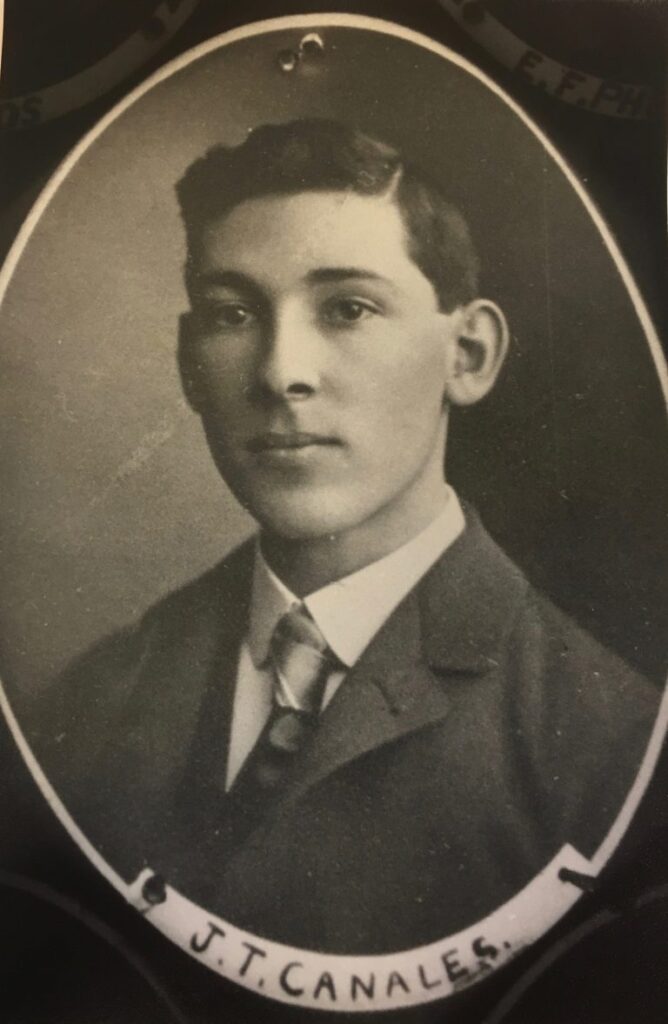
The day saw no dramatic new developments, though repeated mentions of the packed hearing room and the large number of witnesses called by Ranger leadership underscore the gravity of the occasion and the high stakes.
The first witness was John Rogers, U.S. Marshal for the Western District of Texas, who had served as a Ranger for 29 years. Rogers is in the Hall of Fame @txrangermuseum. https://www.tshaonline.org/handbook/entries/rogers-john-harris
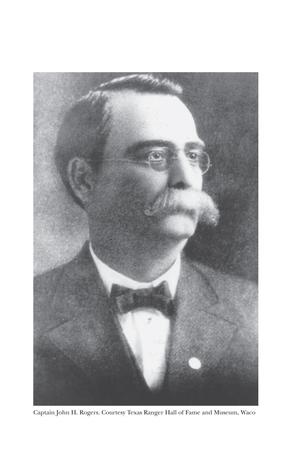
Rogers argued against Canales’ bonding proposals and in favor of a more systematized Ranger Force, the latter anticipating changes implemented in the 1920s and 1930s. He also admitted under questioning that he and all of his deputies, even his stenographer, were bonded.
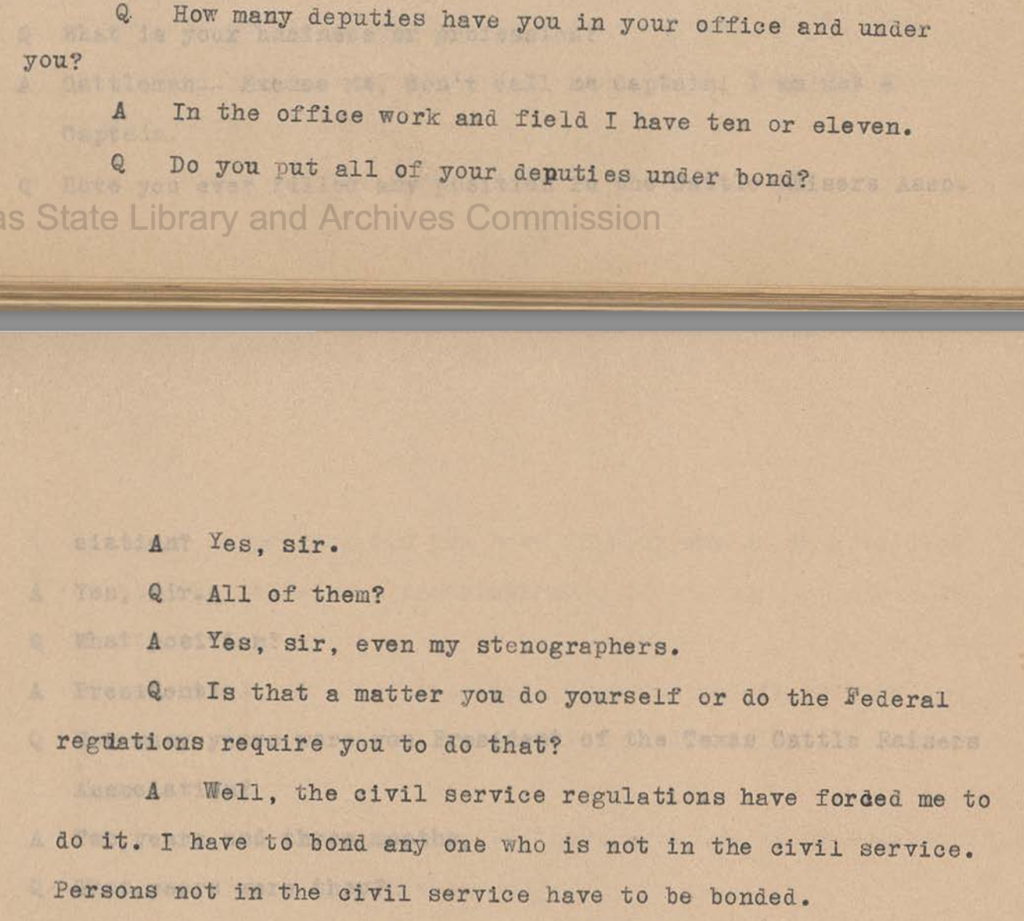
J.D. Jackson, Alpine rancher and former head of the Texas Cattle Raisers Association, similarly argued for the importance of a large and uninhibited Ranger Force. He seemed to endorse the Porvenir Massacre in his description of its aftermath.
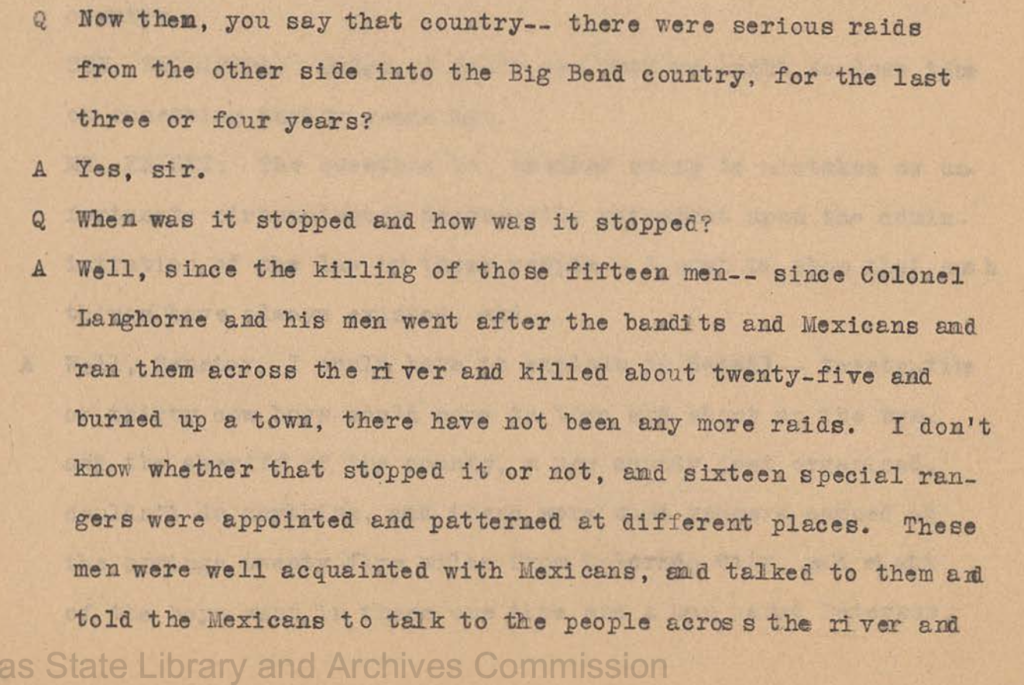
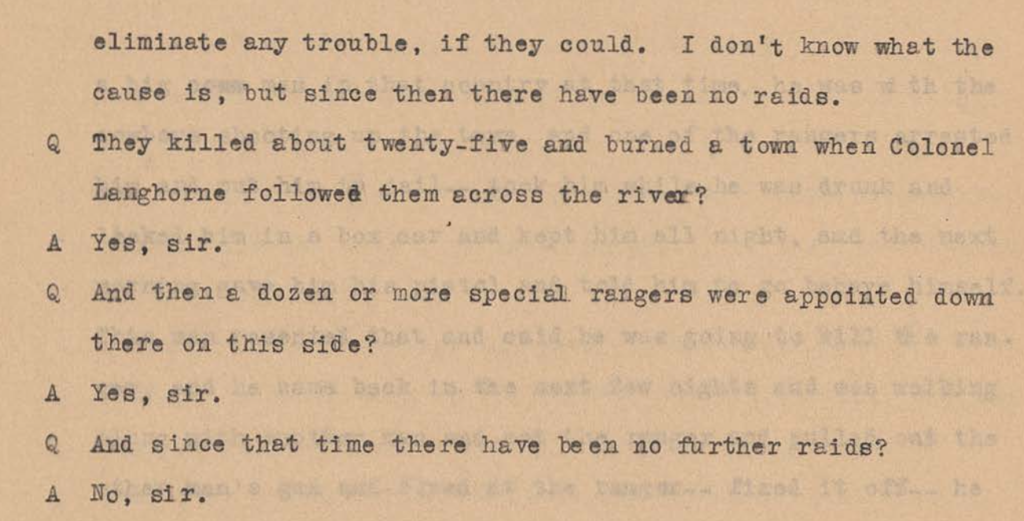
Ranger leaders brought forward a set of witnesses to testify as to the need for Rangers and their reliability, and to dispute Canales’ charges of extralegal executions. Witnesses and Ranger leaders openly mocked the gravity of the latter charges. /
“Whatever his name was,” said Dayton Moses, in reference to one man killed in custody in September 1918. “The name is Jose Maria Gomez Salinas,” interjected Canales.
Pro-Ranger witnesses conflated whiteness and Americanness, as in this exchange about an attorney hired to represent a victim of Ranger torture:
Page: “An American?”
Collins: “He calls himself an American, yes, sir.”
Page: “Well, is he an American?”
Collins: “I don’t know, sir, whether he’s got any mixed blood or all American or not.”
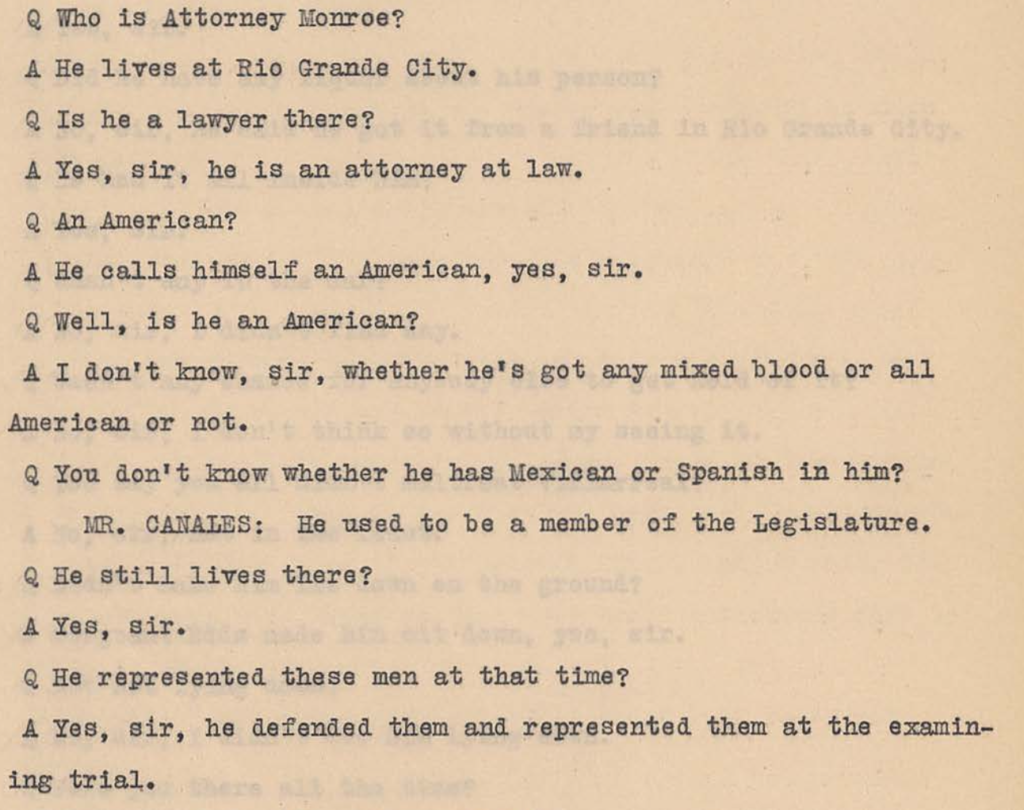
U.S. Army Scout H.E. Barnes testified about Florencio Garcia, whose disappearance while under Ranger control formed the basis for Charge 5. He maintained that cows’ “mashing”–not bullets–accounted for three small holes in the jacket identified as Florencio’s by his father.
Chillingly, Barnes’ testimony was interrupted several time by laughter from the meeting room, overflowing with Rangers and their supporters.
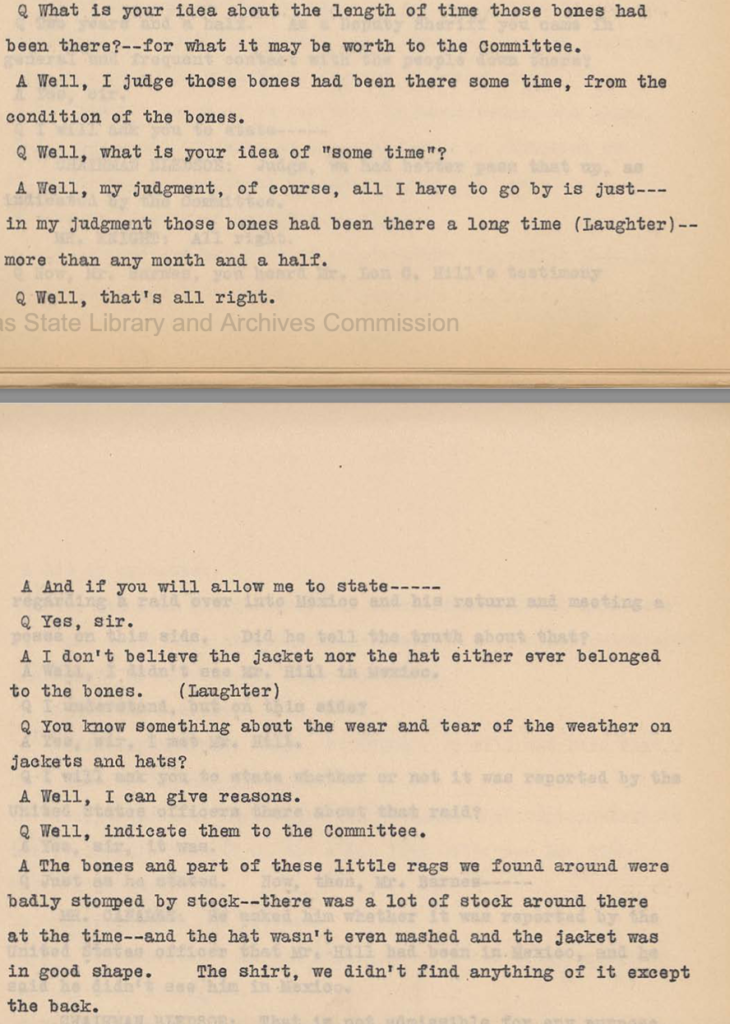
The hearings resumed for the next and final day, when our treatment of them will continue.
This thread is a part of the #OTD in Ranger history campaign that @Refusing2Forget is running this year. Follow this twitter handle or https://refusingtoforget.org/ranger-bicentennial-project/, and visit our website https://refusingtoforget.org/otd-calendar/ to learn more.
Key secondary sources for this thread include:
@BenjaminHJohns1’s Revolution in Texas (pp 169-175)
@MonicaMnzMtz’s The Injustice Never Leaves You (182-216)
Reverberations of Racial Violence
and Ribb, “Reader’s Guide to the Canales Hearings”

